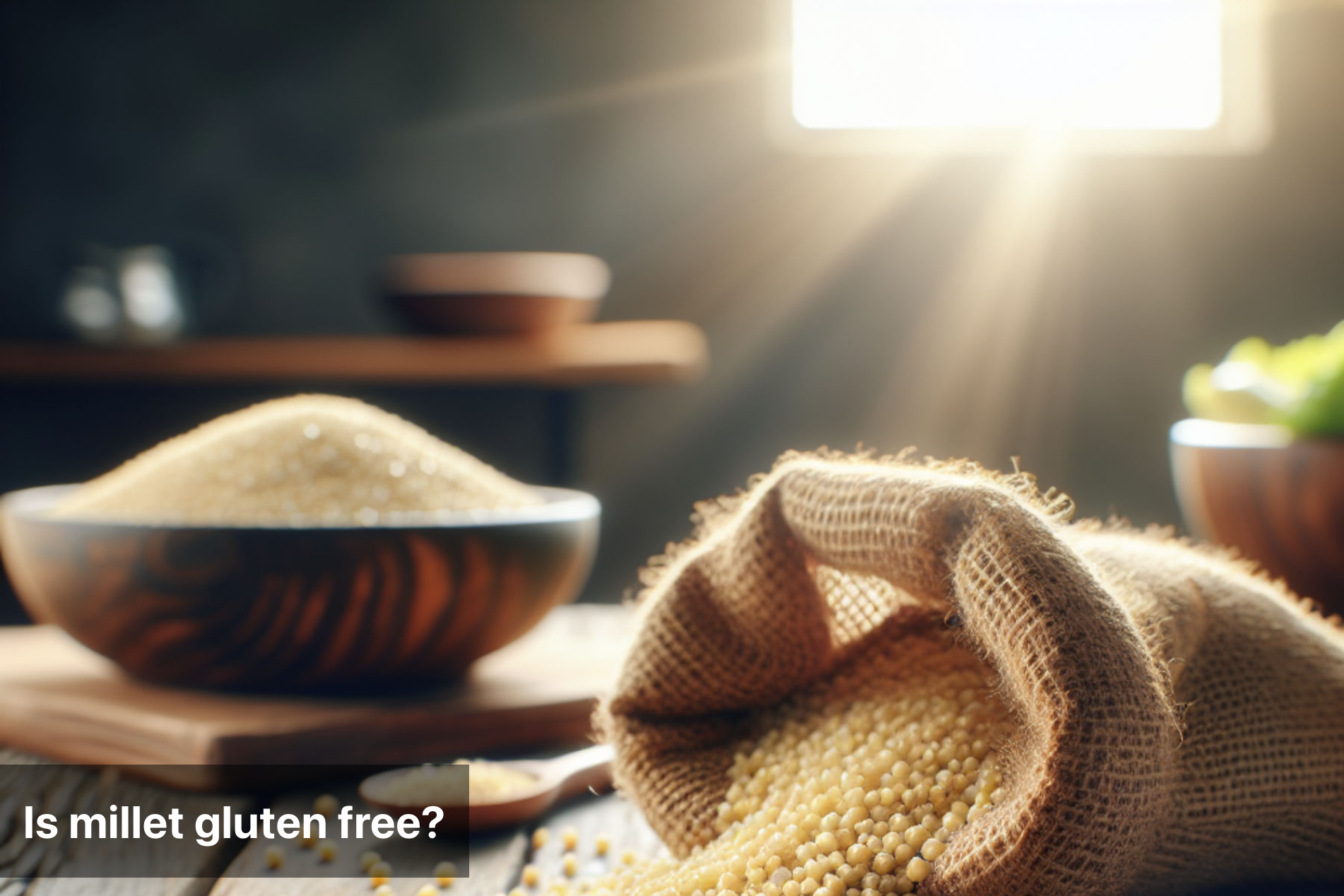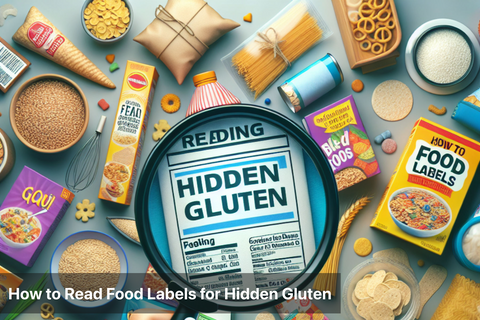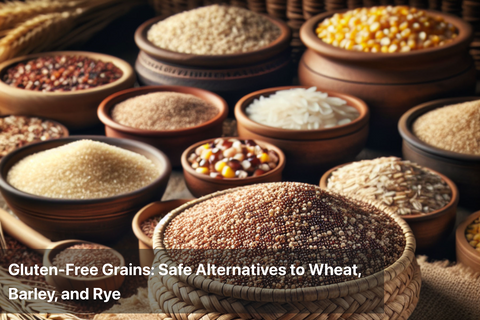
Is millet gluten free?
Millet, a versatile grain, and gluten, a protein, play crucial roles in dietary preferences. Millet, often overlooked, offers a plethora of nutritional benefits, making it an excellent alternative for those seeking gluten-free options. On the other hand, gluten, present in various grains, poses challenges for individuals with gluten sensitivities or celiac disease, leading to the rise in popularity of gluten-free diets.
Millet, a group of small-seeded grasses, comes in different varieties such as pearl, finger, and proso millet. These grains are naturally gluten-free, positioning them as a safe choice for those with gluten intolerance. They are rich in fiber, antioxidants, and essential nutrients like magnesium and iron, contributing to a well-balanced diet.
Understanding the distinction between millet as a gluten-free grain and gluten as a potentially harmful protein is crucial for making informed dietary choices. Incorporating millets in a gluten-free diet can open up a world of culinary possibilities while prioritizing health and well-being.

Are Millets Gluten-Free?
-
Naturally Gluten-Free: Millets do not contain gluten, so they can be safely consumed by individuals with gluten intolerance or celiac disease.
-
Nutritional Benefits: Millets are rich in essential nutrients like fiber, protein, vitamins, and minerals. They are also low in fat and have a low glycemic index, making them a healthy choice for various dietary needs.
-
Culinary Uses: Millets can be used in a variety of dishes, including porridges, salads, bread, and as a substitute for rice or other grains in recipes.
-
Cross-Contamination: Although millets are naturally gluten-free, they may sometimes be processed in facilities that handle gluten-containing grains, which could lead to cross-contamination. For those with severe gluten sensitivity or celiac disease, it's important to ensure that the millets are certified gluten-free or processed in a dedicated gluten-free facility.
Nutritional Profile of Millets
|
Millet Type |
Nutrients |
Gluten Content |
|---|---|---|
|
Pearl Millet (Bajra) |
High in protein, fiber, iron, magnesium, phosphorus, and B vitamins |
Gluten-Free |
|
Finger Millet (Ragi) |
High in calcium, protein, fiber, iron, and B vitamins |
Gluten-Free |
|
Foxtail Millet |
Rich in protein, fiber, iron, calcium, and B vitamins |
Gluten-Free |
|
Proso Millet |
High in protein, fiber, magnesium, phosphorus, and B vitamins |
Gluten-Free |
|
Barnyard Millet |
Rich in fiber, protein, iron, calcium, and B vitamins |
Gluten-Free |
|
Kodo Millet |
High in protein, fiber, iron, calcium, and B vitamins |
Gluten-Free |

Is Millet Safe for a Gluten-Free Diet?
The blog has covered essential information about millet as a grain, gluten as a protein, and the increasing popularity of the gluten-free diet. We delved into the definition and impact of gluten on individuals with sensitivities or celiac disease. We also explored the presence of gluten in various grains and its implications. Furthermore, we discussed the gluten content in different types of millets and their suitability for a gluten-free diet.
Millets are indeed gluten-free grains, making them a fantastic choice for individuals adhering to a gluten-free diet. By incorporating millets into your meals, you can enjoy their nutritional benefits while steering clear of gluten-related concerns. Whether you are looking to diversify your diet or manage a gluten sensitivity, millets offer a versatile and wholesome option.
So, the next time you're at the grocery store wondering, "Are millets gluten-free?" remember that you can confidently add these nutritious grains to your pantry without worrying about gluten. Embrace the goodness of millets and savor the health benefits they bring to your gluten-free lifestyle.
FAQs
-
Is millet gluten free?
Yes, millet is naturally gluten free, making it a safe choice for individuals with gluten sensitivity or celiac disease.
-
Can people with gluten intolerance consume millet?
Absolutely! Millet is a nutritious grain that does not contain gluten, making it an excellent alternative for those with gluten intolerance.
-
Are there any gluten cross-contamination risks with millet?
While millet itself is gluten free, cross-contamination can sometimes occur during processing or storage. It's best to choose certified gluten-free millet to avoid any potential risks.
-
How can I incorporate millet into a gluten-free diet?
Millet can be used in a variety of ways, such as in salads, soups, porridge, or as a substitute for rice. There are plenty of delicious gluten-free recipes that incorporate millet as a key ingredient.
-
Is millet safe for individuals with celiac disease?
Yes, millet is considered safe for individuals with celiac disease as it does not contain gluten. However, it's essential to check for any cross-contamination warnings on the packaging.
-
Are there any health benefits to consuming millet on a gluten-free diet?
Absolutely! Millet is rich in nutrients like fiber, protein, and antioxidants, making it a healthy choice for those following a gluten-free diet. It can help improve digestion and provide essential vitamins and minerals.
This Blog post is an initiative by Lo! Foods, to provide accurate and Nutritionist / Doctor approved information related to Health. Lo! Foods is India's leading brand for Everyday Functional Foods. Foods designed for specific Health conditions or Needs. Lo! Foods also runs India's largest range of Low Carb Healthy Cloud Kitchens, under the brand names of Lo!, ProteinChef, ATH (All Things Healthy) and DiabeSmart.















Leave a comment
Your email address will not be published.